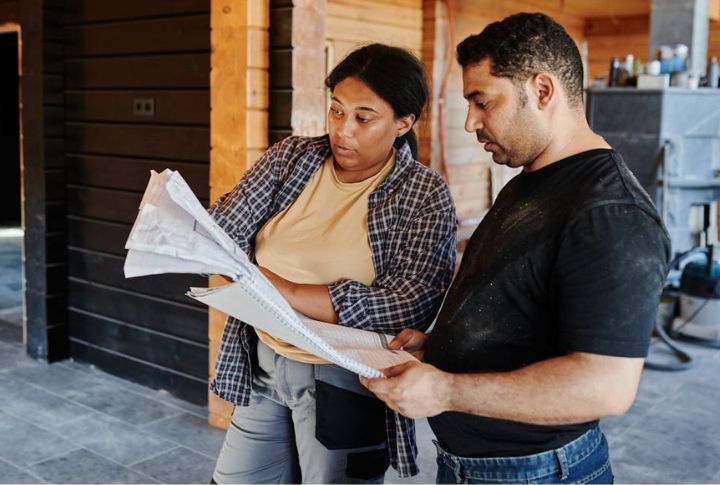
Most families dream of leaving a fortune behind for their next generations. However, when you work without a long-term plan, wealth rarely survives after a few decades. True financial legacies are built on everyday habits that keep adding up over time. If you’re ready to make all the right decisions, here’s your checklist with 20 practical wealth-building moves that can help even two generations.
Start Investing Early

The earlier you put your money to work, the more time it has to grow. Thanks to the magic of compound interest, regular contributions can snowball into something significant over the years. Early investors not only ride out market ups and downs but also take full advantage of tools like IRAs and 401(k)s that reward consistency.
Maintain A Budget And Control Spending

Tracking expenses reveals waste and encourages mindful consumption. By living below one’s means, families free up resources for savings and investments. Over time, this systematically builds wealth and prevents lifestyle creep from derailing long-term financial goals.
Invest In Education And Personal Development

U.S. Bureau of Labor Statistics research shows that median earnings for workers with advanced degrees are nearly twice those of workers with only a high school diploma. So, build on skills that can help you take the legacy of your family further. With generations working together towards overlapping skills, it is easy to create a successful business.
Minimize And Manage Debt Wisely

Focus on paying off the costliest balances first while still covering minimums on others. Financial experts view a debt-to-income ratio of 36% or lower as a sign of strong financial health, while lenders generally allow up to 43% for a “Qualified Mortgage.”
Diversify Investment Portfolio

Diversify across stocks, bonds, real estate, and international markets using low-cost index funds. Rebalance annually to align with your goals. Fannie Mae research shows diversified households weather downturns more effectively. Adding REITs or ETFs broadens your exposure. Then, gradually shift toward stability with age to ensure steady compounding.
Leverage Employer Benefits Strategically

Many workplaces offer financial perks beyond salary—HSA contributions, tuition reimbursement, and stock options. When you fully utilize these benefits, you gain extra value without extra effort. So, review your HR package annually to ensure you’re not leaving free money or growth opportunities on the table.
Build And Maintain Real Estate Holdings

Real estate remains one of the most effective ways for generating wealth. Properties typically appreciate over time, and rentals provide a stable, passive income. Also, fixed-rate mortgages expand buying power. It outpaces inflation, which preserves both present and future financial stability.
Cultivate Financial Literacy In the Family

Money lessons that start at home often last a lifetime. Parents who explain how saving and investing work help children avoid costly mistakes later. So, have open conversations about financial goals to create trust and accountability within the family. With strong financial literacy, heirs can manage the inherited assets wisely.
Create And Follow An Estate Plan

Trusts and wills provide clear instructions, which reduce disputes among heirs and protect family relationships. Careful planning also minimizes estate taxes while keeping the value intact. When you have proper documents in place, probate delays shrink and assets move efficiently to strengthen financial security for decades.
Utilize Life Insurance Effectively

Life insurance is both protection and a strategy. It helps heirs with immediate funds to cover estate taxes and obligations. Permanent policies also build cash value that supports future needs, and some families extend their legacy further by directing benefits toward meaningful charitable causes.
Build An Entrepreneurial Mindset

Owning a business creates new income and independence beyond a paycheck. Families that pass down enterprises preserve both wealth and legacy. With a business in place, future generations inherit more than money—they gain opportunity and the foundation to keep growing what earlier generations worked hard to build.
Use Credit Strategically To Build Leverage

Credit isn’t just for borrowing—it’s a tool for leverage when used wisely. Parents with strong credit scores access better mortgage rates, business loans, and insurance premiums. You just have to maintain low utilization, pay on time, and periodically review your credit reports to stay in top shape.
Invest In Tax-Efficient Accounts

Tax-advantaged accounts such as Roth IRAs and 529 plans exist because governments reward long-term savers with deferred or eliminated tax burdens. This policy design amplifies compounding returns by turning consistent contributions into far larger legacies than taxable investments could achieve.
Embrace Delayed Gratification

Building wealth means making choices that align with the long game. So, set up automatic contributions into retirement accounts before discretionary spending to reduce temptation. You can also use the famous 24-hour rule for purchases to curb impulse buys. Another great pick is to direct your bonuses toward investments instead of lifestyle upgrades, which can lead to compound returns.
Regularly Review And Adjust Financial Plans

Financial plans work best when you keep them updated. A yearly review can expose weak assets and reveal better opportunities, especially for life events such as marriage or new business ventures. Furthermore, awareness of tax changes helps avoid penalties. This way, regular reviews keep your strategies effective and family wealth goals firmly in place.
Negotiate Major Purchases And Bills

From medical bills to home repairs, negotiation can save thousands. Many service providers would give discounts if you ask, especially when paying upfront or bundling services. Families that treat big expenses as flexible, not fixed, unlock hidden savings that compound over time.
Choose Career Growth

Income often grows most through a career, yet many people leave money untapped. The best way to begin is by seeking mentorship and entering high-demand industries. You should also change your job if the current one feels stagnant or overwhelming. Those who change jobs secure raises nearly twice as large as those who stay with one company.
Build A Strong Emergency Fund

Unexpected expenses often derail long-term wealth plans. But when you have a dedicated emergency fund, typically three to six months of essential costs, it protects families from dipping into investments or taking on high-interest debt. The Federal Reserve reports that nearly 40% of Americans cannot cover a $400 emergency, which makes this buffer a critical step toward lasting financial security.
Use Windfalls To Accelerate Long-Term Goals

Whether it’s a tax refund, inheritance, or work bonus, unexpected money can supercharge your financial plan. Instead of spending it impulsively, direct windfalls toward debt payoff, investments, or college funds. This habit turns short-term luck into long-term leverage for your family’s future.
Foster A Culture Of Giving And Charity

Philanthropy strengthens both family legacy and community impact. The Lilly Family School of Philanthropy notes that households engaged in regular giving foster stronger financial stewardship among younger generations. Charitable contributions also reduce taxable income, which reinforces wealth preservation.
